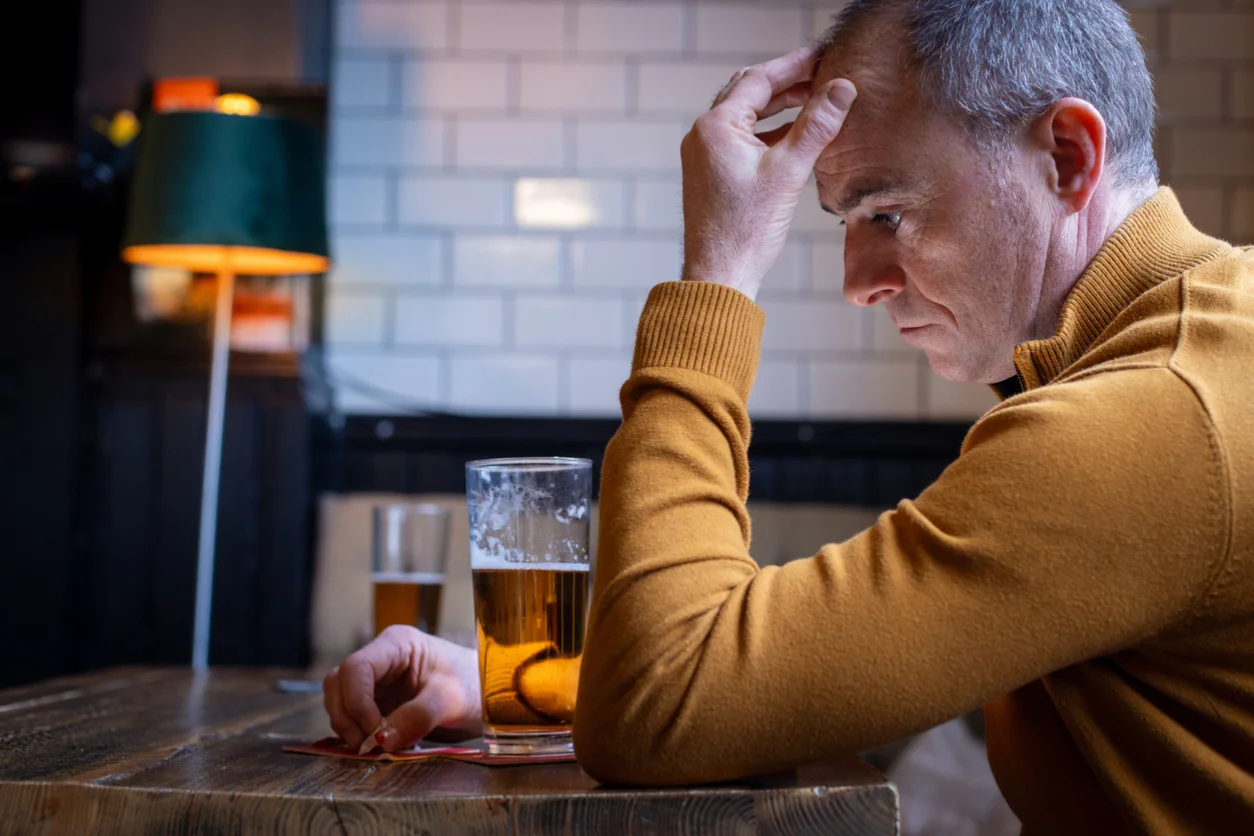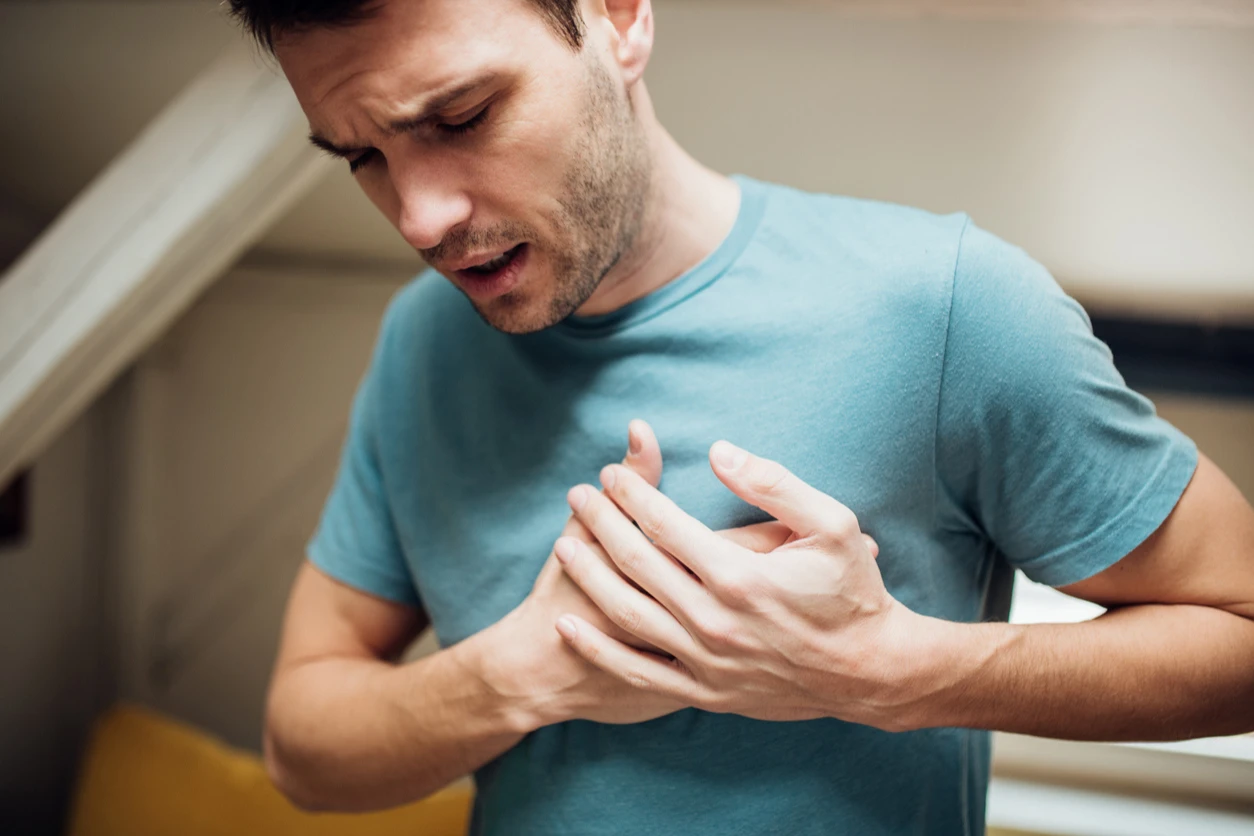
Depression is a very complex and often debilitating condition, and it affects roughly 1 in 6 adults in the UK. Professional help and therapeutic strategies, of course, exist to manage it, but some individuals turn to alcohol as a means of coping. This behaviour, known as self-medicating, can provide temporary relief but often leads to worsening mental health and long-term complications.
Unfortunately, this isn’t a small number of people doing this. A recent study showed that 15.4% of people diagnosed with major depressive disorder were actively self-medicating using alcohol.
If you find yourself reaching for alcohol when you’re feeling low, it might be worth reflecting on whether you’re using it to mask something deeper. Here are eight key signs that you may be self-medicating depression with alcohol.
Self-Medicating Depression With Alcohol: 8 Key Indicators
1. You’re Drinking to Escape Your Emotions
Whether it’s done consciously or subconsciously, one of the most common signs of self-medication is using alcohol to numb emotional pain.
Depression often brings feelings of sadness, hopelessness, or emptiness, and alcohol can provide temporary relief from these emotions. So, if you do happen to be finding yourself drinking specifically to block out thoughts, feelings, or memories rather than for social enjoyment, it may be a sign that you are self-medicating.
Alcohol can and will likely momentarily lift your mood in the moment. But this effect is short-lived. Once the alcohol wears off, feelings you were trying to avoid often return more intensely, leading to a cycle where more alcohol is needed to regain that fleeting sense of relief.
2. Your Alcohol Tolerance Is Increasing
If you’re drinking frequently, it can lead to tolerance. This means you need to consume more alcohol to achieve the same effects.
Frequent drinking is roughly 15 drinks per week. This might seem like a lot, but in reality, this can happen gradually. To put it into perspective, a couple of drinks a day equates to 15 drinks per week, which is not unusual for someone who is self-medicating with alcohol. However, 15 drinks a week is enough to question whether or not a pattern is forming.
So, if you find that a single glass of wine or a pint of beer no longer takes the edge off your mood and you need to drink more frequently or in larger amounts, this is a warning sign.
This pattern can (gradually) lead to dependence, which will make it harder to stop or cut down. What starts as a way to ‘take the edge off’ can spiral into needing alcohol just to feel normal.
3. You Experience Cravings for Alcohol During Emotional Lows
Do you feel an urge to drink when you’re feeling down, anxious, or stressed? If you’re self-medicating depression with alcohol, it could be becoming your go-to coping mechanism whenever you face difficulties in life.
As we touched on above, drinking may provide short-term relief – but what it doesn’t do is address the underlying cause of your distress and what’s bothering you. Over time, relying on alcohol to manage emotions can make it more challenging to develop healthier coping mechanisms.
4. You’re Drinking Alone Over Social Drinking
Social drinking is common. But if you find yourself drinking alone more frequently, especially when feeling low, it could be a sign of a deeper issue. Drinking in isolation often means that alcohol is being used as an emotional crutch rather than as part of a social activity.
Drinking alone can also lead to becoming more secretive about your alcohol consumption. You might find yourself hiding the facts and also lying about how much you’re drinking or feeling guilty about drinking in private. These are all indicators that alcohol use has become a way to cope rather than just an occasional indulgence.
5. Alcohol Is Starting to Affect Your Sleep
Many people (roughly 80% – 90%) with depression struggle with insomnia or disrupted sleep, and alcohol is often used as a way to unwind and fall asleep faster.
Alcohol can initially make you feel drowsy, but it disrupts sleep quality, leading to frequent waking during the night. Poor sleep will only worsen depression symptoms, creating a vicious cycle where you wake up feeling even worse and may turn to alcohol again to ease your discomfort.
6. You’re Neglecting Responsibilities and Hobbies
Depression often saps motivation. But adding alcohol to the mix can make it even harder to stay engaged and go about your daily life.
If drinking is interfering with your ability to work, maintain relationships, or take care of essential responsibilities, it’s a clear sign that it may have moved beyond casual use.
Ask yourself these questions. Have you stopped engaging in hobbies or activities you once really enjoyed? Do you find yourself cancelling plans, calling in sick, or neglecting your well-being because of drinking? If so, alcohol could be worsening your depression rather than helping you cope with it.
7. You Experience Withdrawal Symptoms When You Don’t Drink
If you start to feel anxious, irritable, shaky, or nauseous when you have not had a drink, it may indicate that your body has developed a dependence on alcohol.
This is a serious red flag, as it suggests that alcohol is no longer just an emotional crutch but a physical necessity.
Withdrawal symptoms can reinforce the cycle of drinking, as consuming alcohol provides temporary relief from these unpleasant effects. Over time, this leads to higher levels of consumption and increased difficulty in stopping.
8. Your Mental Health Hasn’t Gotten Better. It’s Getting Worse
Paradoxically, although alcohol may seem like a solution in the short term, it ultimately makes depression worse.
Alcohol is a depressant. This means it slows down the central nervous system and can negatively impact mood regulation. The facts are, over time, regular alcohol use can:
- Increase feelings of sadness, hopelessness, and anxiety.
- Lower serotonin and dopamine levels, making it harder to experience pleasure.
- Impair decision-making and impulse control, increasing the risk of self-destructive behaviours.
- Contribute to suicidal thoughts, particularly in those who already struggle with depression.
If you’ve noticed that your mental health has declined despite drinking to ‘feel better,’ it’s likely that alcohol is part of the problem, not the solution.
What Can You Do If You Recognise These Signs?
Being able to face the fact that you may be self-medicating depression with alcohol is a brave and important first step. The good news is that there are healthier ways to manage depression, and you don’t have to face this challenge alone.
Reach Out for Support
Speaking to a GP, therapist, or support group can help you address both depression and alcohol use in a way that is safe and sustainable.
There are effective treatments available, from therapy to medication, that don’t involve the risks of self-medicating.
Try Alternative Coping Strategies
Instead of relying on alcohol, explore healthier ways to manage stress and low moods, such as:
- Exercise can boost mood and energy levels.
- Mindfulness or meditation to help with emotional regulation.
- Engaging in hobbies or creative outlets that provide a sense of fulfilment.
- Talking to friends or loved ones for emotional support.
Set Boundaries With Alcohol
If you’re concerned about your drinking habits, try to set limits on your alcohol consumption. Cutting down gradually or having alcohol-free days can help you assess the role alcohol is playing in your life.
If you do find it difficult to control your drinking despite your best efforts, it may be time to seek professional support.
Self-Medicating Depression With Alcohol: The Key Takeaways
Self-medicating depression with alcohol may seem like a quick fix, but it ultimately does more harm than good.
If you recognise any of the signs above, it’s worth taking a step back and considering whether alcohol is helping or hindering your mental health.
There is no shame in struggling, and support is available. Seeking help and developing healthier coping mechanisms can make a world of difference in your journey towards improving your mental well-being.
Posted on Monday, February 17th, 2025 at 12:37 pm in Addiction, Mental Health.






 Call Us
Call Us Contact Us
Contact Us